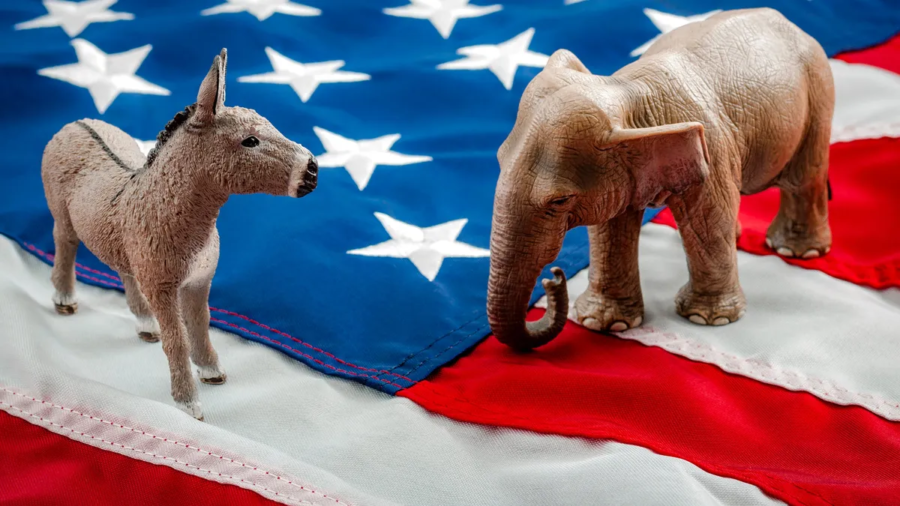Iowa potentially loses first nation in the state status for Democrats
Some worry that a caucus swap could lower Iowa’s importance in the eyes of political candidates.
April 19, 2022
Iowa lost its guarantee to have the first caucus of the Democratic Party in the nation in 2024, the Democratic National Committee declared on Wednesday.
The first caucus in the nation influences the course of the electoral process and the candidates success, said Kelly Shaw, associate teaching professor of political science. Since 1972, Iowa always held the first Democratic caucus, with the Republican party moving their first caucus to Iowa four years later.
A positive or a negative result in the Iowa caucus can dictate the coverage as well as the image of a candidate when moving on to the other states, Shaw said.
Iowa as a swing state and with caucuses taking place at a local level required candidates to be prepared and strongly organized, which leads to an early dissociation of badly organized candidates, he said.
After the DNC announced they would open up which state’s caucus takes place first, the GOP announced there will be no change on their side, and Iowa will still hold the first Republican caucus in the nation.
After holding the first in the nation status for more than 40 years, the Democratic caucuses in 2016 and 2020 didn’t go as planned.
“In 2016, the Democrats had some problems […] in terms of recording votes and deciding who won,” Shaw said.
After the ambiguity regarding the vote counting and winner determination in 2016, the Democrats wanted to make sure that something similar wouldn’t happen again in 2020. Because of that, the national party developed an app to help with the caucus process, but the app didn’t work on election day, Shaw said.
Abigail Meehan, a senior double majoring in political science and Spanish and the president emeritus of the ISU College Democrats, co-ran the caucus in her precinct, a part of the dorms on campus. She experienced the problems of that caucus night first hand.
“There is not a lot of training. There is a huge lack of support, and they relied heavily on the app that we kind of knew wouldn’t work and turned out to be a complete failure,” she said. “It was a disaster.”
Shaw said that the problems that occurred in the 2016 and 2020 election cycles were the root of the DNC decision to open up the primary to other states. Additionally, the Democratic party attaches great importance to diversity in terms of gender as well as race.
“Part of it as well is a consistent fear that the state of Iowa probably holds too much importance given the fact that we’re largely non-representative of the entire country,” he said. “We don’t have as much diversity here that other parts of the country do.”
In a press statement Ross Wilburn (IA-46), Iowa State representative, said that Iowa will still make their case to hold the first caucus.
“It’s critical that Iowa continue to have a voice in the presidential nomination process so that candidates can meaningfully connect with a grassroots infrastructure that includes working families and a diversifying rural America,” according to the release.
The first caucus taking place in another state could have distinct effects on the state of Iowa and its Democrats.
Iowa Democrats are proud of the status as first in the nation, and a relocation could hurt the participation and enthusiasm within the Iowa Democratic Party, Shaw said.
Meehan said if another state takes over the first in the nation status, it will be an embarrassment for the Iowa Democratic Party.
If Iowa would be moved back in the caucus calendar, the presidential candidate could already be largely selected before the Iowa caucus. People are invested in the caucus because they have the feeling that they can make a difference, Shaw said. This perception could change drastically, leading to lower interest and participation.
This decrease could intensify even more with changes in the weeks before the caucus. Meehan said presidential candidates have to fight for voters in addition to the tight political competition Iowa has as a battleground state. Almost every presidential candidate visits Iowa in the pre-election process, and the candidates’ interest would probably shift away if another state becomes the first in the nation.
Shaw said that there are two possible scenarios for the determination of a new location.
On the one hand, the first caucus could be moved to a more diverse state.
“States just as California, New York, New Jersey are heavily Democratic, so it would make a lot of sense for them to move it to one of those states,” he said.
The more plausible scenario would be a relocation to another battleground state with more electoral weight than Iowa, Shaw said. Possible locations for this scenario are Colorado, Indiana or Ohio.
The decision has not been made yet, so Iowa still has the opportunity to prove why it should hold the first caucus in the nation in 2024.
“I think [the DNC’s] goal really is to evaluate the arguments that the various states make,” Shaw said.

















